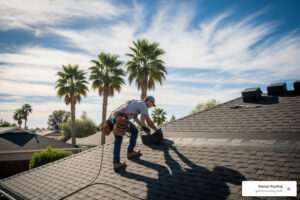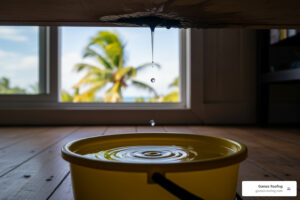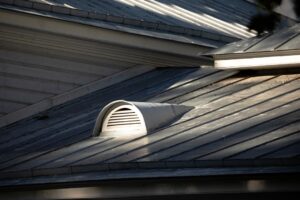Evaluate Your Decking Contractor’s Quality
How can you ensure the commercial decking contractor you hire meets industry quality standards and protects your investment from day one? Confidence begins with verifying licenses, inspecting portfolios, and confirming expertise in advanced waterproofing systems like Duradek vinyl membranes. This guide empowers homeowners and property managers with ten critical evaluation areas: licensing and insurance, proven experience, material and safety specifications, code and permit compliance, installation best practices, transparent pricing, warranty and aftercare support, reputation assessment, and long-term ROI. Alongside these questions, discover how Gomez Roofing’s authorized Duradek installation and Florida-focused expertise deliver durable, low-maintenance commercial decking solutions.
What Licenses, Insurance, and Certifications Should a Quality Commercial Decking Contractor Have?
Commercial decking demands rigorous credentials to safeguard structural integrity and liability coverage.
Why Are Licensing and Insurance Critical for Commercial Decking Contractors?
Proper licensing demonstrates that a contractor meets state requirements, while insurance protects clients against on-site accidents and property damage. When a contractor holds a valid Florida building license and carries general liability plus workers’ compensation policies, you minimize financial risk and ensure compliance with regulatory standards. Verifying these credentials lays the foundation for a trusted partnership.
Which Certifications Demonstrate Expertise in Commercial Deck Installation?
Certifications such as a Duradek Certified Installer credential and trade association memberships (e.g., Florida Roofing and Sheet Metal Association) validate mastery of specialized decking products and installation protocols. These industry-recognized credentials signal that technicians are trained in waterproof vinyl application, load-bearing calculations, and substrate preparation. Selecting a contractor with these awards promotes long-lasting performance.
How Can You Verify a Contractor’s Licenses and Insurance Status?
Begin by requesting copies of the contractor’s license number, proof of insurance declarations, and certification cards. Confirm license validity on the Florida Department of Business and Professional Regulation website and call the insurer directly to verify coverage dates. Documenting this information ahead of project kickoff prevents delays and compliance issues.
Verifying credentials first ensures every subsequent evaluation step—from experience to material quality—rests on a foundation of regulatory compliance.
How Do You Assess a Contractor’s Experience and Portfolio for Commercial Decking Projects?
Depth of experience indicates a contractor’s ability to manage complex structural challenges and unique site conditions.
What Questions Should You Ask About Past Commercial Decking Projects?
Ask the contractor to describe project scopes, square footage, substrate types, system choices (e.g., Duradek vinyl vs. composite), and any encountered obstacles. Inquire how they resolved site-specific issues like drainage or insulation integration. Detailed responses reveal problem-solving skills and technical versatility, which directly impact job outcomes.
How to Evaluate References and Client Testimonials Effectively?
Request three to five recent commercial references, then contact property managers about schedule adherence, workmanship quality, and responsiveness to change orders. Review online testimonials for recurring praise or concerns. Correlating firsthand feedback with observed portfolio images confirms reputational consistency and reliable client satisfaction.
Why Is Specialized Experience with Waterproofing Decking Solutions Like Duradek Important?
Duradek’s vinyl membrane requires precise substrate leveling, seam welding, and flashing integration. Contractors certified in Duradek installation understand moisture barriers, thermal expansion, and warranty-triggering protocols. This niche expertise reduces leak risks and prolongs membrane lifespan, directly safeguarding the deck structure and underlying roof assembly.
Evaluating a contractor’s portfolio and references clarifies whether their track record aligns with your project’s complexity and waterproofing needs.
What Are the Key Quality Standards and Material Specifications for Commercial Decking?
Commercial decks must balance durability, safety, and maintenance requirements under heavy foot traffic and weather exposure.
Which Commercial Decking Materials Offer the Best Durability and Maintenance?
Below is a comparison of common commercial decking products, highlighting lifespan expectations and upkeep demands:
| Material | Durability Rating | Maintenance Level |
|---|---|---|
| Duradek Vinyl | Very High | Low |
| Composite Deck | High | Moderate |
| Aluminum Deck | Very High | Minimal |
| Pressure-Treated Wood | Moderate | High |
Each option presents trade-offs among longevity, slip resistance, and touch-up needs. Choosing a low-maintenance material like Duradek or aluminum streamlines upkeep and extends service intervals.
Commercial Decking: Professional Guide to Best Materials
Commercial decks require safety features such as efficient drainage, sturdy handrails, and non-slip decking materials to ensure the safety of employees and customers. Compliance with local building codes is essential to avoid legal issues.
**
This source highlights the importance of safety features and compliance with building codes, which is crucial for verifying a contractor’s compliance with building codes and safety regulations.
How Do Waterproofing and Slip-Resistance Features Impact Deck Quality?
Integrating a waterproof membrane like Duradek prevents water intrusion and substrate rot, while textured surfaces ensure occupant safety. Waterproofing prolongs deck health by blocking moisture—an essential safeguard for rooftop terraces—while slip-resistant additives reduce liability. Together, these features maintain structural integrity and protect property managers from repair costs.
Commercial Deck Requirements and Recommendations
Commercial decks are subject to additional building requirements and regulations to ensure people’s safety, including those related to construction types, means of egress, and lighting. Waterproof coatings are essential for deck construction to ensure safety and structural integrity.
**
This source provides information on the requirements and recommendations for commercial decks, which is relevant to the key quality standards and material specifications for commercial decking.
What Warranty Coverage Should You Expect for Materials and Workmanship?
Quality contractors offer separate warranties for product performance (often 10–20 years for vinyl membranes) and installation labor (typically 5–10 years). A dual-warranty structure ensures material defects and workmanship errors are covered independently, providing comprehensive protection against premature failure.
How Do Strong Warranties Provide Peace of Mind for Property Managers?
Extensive warranties shift financial responsibility away from property owners, encouraging proactive maintenance and long-term planning. When contractors back installations with solid guarantees, facility managers can allocate budgets confidently, knowing repair liabilities are contracted away.
With clear material standards and robust warranties established, the next critical step is confirming regulatory compliance and safety requirements.
How Can You Verify a Contractor’s Compliance with Building Codes and Safety Regulations?
Ensuring adherence to local codes and safety mandates prevents costly rework, fines, and occupant hazards.
What Florida-Specific Building Codes Apply to Commercial Decking?
Commercial decks in Florida must meet chapters of the International Building Code (IBC) adopted statewide, plus local amendments. Key sections cover minimum live load capacity (typically 100 psf), handrail and guardrail heights, and egress pathways. Florida building inspectors enforce these criteria to ensure structural safety and occupant access.
Florida Deck Building Codes
Commercial decks in Florida must adhere to specific building codes, including those related to live load capacity, railing heights, and safety features. These codes are enforced to ensure structural integrity and occupant safety.
**
This source provides information on the specific building codes that commercial decks in Florida must comply with, which is essential for verifying a contractor’s compliance with building codes and safety regulations.
Which Safety Features Must Commercial Decks Include?
- Non-slip surfaces rated to ADA standards
- Guardrails and handrails at prescribed heights (minimum 42 inches)
- Load capacity calculations posted on structural plans
Each safety feature reduces accident risk and demonstrates code compliance during inspections.
How Does a Contractor Manage Permitting and Inspection Processes?
A qualified contractor obtains all required permits, submits engineered shop drawings, and schedules municipal inspections at framing, decking, and final stages. They coordinate with code officials and supply necessary reports. Transparent permit handling expedites approvals and ensures every construction phase meets safety benchmarks.
Confirming code and safety compliance completes the technical vetting needed before installation begins.
What Are the Best Practices in Commercial Deck Installation and Project Management?
Methodical staging and oversight guarantee consistent quality and on-time delivery.
What Are the Key Stages of a Commercial Deck Installation?
- Substrate preparation and waterproof membrane installation
- Framing or pedestal system placement
- Deck surface attachment and fastening
- Flashing and edge detail integration
- Final inspection and cleanup
Adhering to this sequence ensures each component supports the next, maintaining system integrity.
Duradek Installation Information
Duradek vinyl membrane installations require a smooth, structurally sound surface. The installation process involves specific techniques like heat-welding seams and mechanical fastening of perimeters to ensure a waterproof system. Duradek is only installed by authorized dealers who have been trained in the manufacturer’s installation techniques.
**
How Does a Contractor Ensure Quality Control During Installation?
Effective quality control includes daily site inspections, seam weld testing for vinyl membranes, torque checks on fasteners, and moisture readings of substrates. Documented checklists track compliance with manufacturer guidelines. Such rigorous oversight prevents defects and aligns on-site work with contractual quality standards.
Regular progress updates, milestone calendars, and contingency planning keep stakeholders informed and projects on schedule. Open communication channels—weekly on-site meetings or shared project dashboards—surface potential delays early, allowing timely adjustments and preserving budget accuracy.
Vinyl Decking Installation Considerations Builders Should Know
Duradek vinyl membranes are installed only by trained and authorized applicators who have completed Duradek’s hands-on training program. The strength of the Duradek system is the method used to weld the vinyl sheets together. The vinyl is installed with a ¾” overlapped, heat welded seam which can be handled one of two ways.
**
How Are Budget Adherence and Change Orders Handled?
Transparent contractors provide line-item cost breakdowns, approval thresholds for change orders, and defined billing milestones. Documented change management protocols outline scope adjustments, cost impacts, and execution timelines. This approach eliminates surprise fees and fosters financial trust throughout construction.
Robust project management practices ensure installations align with both quality expectations and budget constraints.
What Should You Know About Pricing Transparency and Contract Details?
Clarity in quotes and contractual language reduces disputes and hidden costs.
How to Understand Detailed Quotes and Avoid Hidden Fees?
Detailed quotes separate material costs, labor charges, permit fees, and mobilization expenses. Verify inclusion of site cleanup, waste disposal, and post-installation inspections. Asking for a clear “scope of work” exhibit prevents unexpected surcharges and clarifies contractor responsibilities.
What Payment Schedules and Change Order Processes Are Standard?
Standard payment structures often require a 10–20% deposit, progress payments at predetermined milestones, and a final balance upon project completion. Change orders should include written descriptions of scope changes, cost implications, and signature authorization. Adhering to these norms ensures financial predictability for both parties.
Transparent pricing and contract governance underpin a collaborative contractor–client relationship.
How Do Warranties and Post-Completion Support Reflect Contractor Quality?
After-sales care demonstrates a contractor’s commitment to lasting performance.
What Is the Difference Between Material and Workmanship Warranties?
Material warranties cover product defects—such as membrane tears or composite discoloration—directly from the manufacturer. Workmanship warranties address installation flaws like improper sealing or fastening. Separating these guarantees clarifies responsibility for repairs and extends overall deck protection.
Industry-Leading Warranties
TimberTech offers industry-leading warranties for their decking products, with varying warranty periods for different product lines. Warranties are available to commercial purchasers, and the applicable warranty periods vary.
**
How Does a Contractor Support Maintenance and Warranty Claims?
Leading contractors offer scheduled maintenance inspections, quick-response repair teams, and clear claim procedures. They document membrane conditions, fastener integrity, and flashing performance to validate warranty eligibility. Timely maintenance visits prevent minor issues from escalating into major failures.
Why Is Ongoing Support Important for Long-Term Deck Performance?
Consistent support ensures early identification of wear patterns, prompt remediation of leaks, and preservation of slip-resistant surfaces. Ongoing maintenance prolongs deck life, protects warranties, and maximizes return on investment over decades of service.
Reliable aftercare distinguishes top-tier decking contractors from those who leave clients to manage post-installation challenges alone.
How Can You Evaluate a Contractor’s Reputation and Client Satisfaction?
Social proof confirms that a contractor delivers promised quality in real-world settings.
What Role Do Reviews and Testimonials Play in Contractor Selection?
Online reviews on platforms like Google Business Profile reveal patterns of punctuality, communication clarity, and workmanship quality. Testimonials that reference specific Duradek installations or code-inspection successes provide targeted credibility. Prioritize contractors with consistently high ratings and detailed feedback.
About Duradek Installers | Authorized Duradek Dealers in BC, Canada
Duradek authorized contractors receive training in floor laying and single-ply roofing skills. All Duradek products, when applied by an authorized contractor, are covered by written warranties. Duradek is only available as an installed product applied by trained, authorized contractors who understand the waterproofing details unique to decks, balconies, and roof decks.
**
How to Verify Client References and Handle Dispute Resolution?
When speaking with references, ask about issue resolution processes, responsiveness to defect claims, and final satisfaction levels. A contractor’s willingness to mediate conflicts and uphold warranties demonstrates integrity. Documenting these experiences informs your decision and sets expectations for future engagements.
Assessing reputation completes the human-factor evaluation before entering contractual commitments.
What Is the Long-Term Value and ROI of Quality Commercial Decking?
Investing in superior materials and installation practices pays dividends through reduced lifecycle costs and enhanced property appeal.
How Does Quality Decking Enhance Property Value and Aesthetics?
Well-installed decking systems like Duradek waterproof membranes elevate rooftop amenities, expanding usable square footage for tenants or patrons. Attractive surfaces and reliable structural performance boost marketability and justify premium rental or sale pricing. Enhanced outdoor spaces become revenue-generating assets.
What Are the Maintenance Requirements for Different Decking Materials?
Maintenance demands vary widely:
- Duradek Vinyl: Annual rinse and seam inspection
- Composite Deck: Biannual cleaning and occasional stain removal
- Aluminum Deck: Minimal cleaning and periodic fastener checks
- Wood Deck: Regular sealing, staining, and replacement of deteriorating boards
Matching maintenance effort with available resources informs material selection and ROI calculations.
How Does Choosing Durable Materials Like Duradek Impact ROI?
Duradek’s long warranty (10–20 years) and low-maintenance profile minimize ongoing costs and downtime. Reduced repair frequency and lower replacement expenses translate to a 70–80% ROI within the first decade. Property owners recoup initial investment through savings on labor, materials, and vacancy costs.
Strategic material selection closes the loop on value, ensuring every dollar spent supports lasting deck performance.
Evaluating contractors across these ten questions establishes both technical confidence and financial clarity. Partnering with a certified provider like Gomez Roofing, backed by authorized Duradek installation and Florida code expertise, delivers commercial decking that stands up to traffic, weather, and the test of time.




